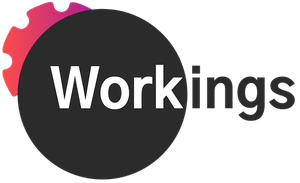Here are some of the most important lessons we’ve learned in our nearly three years of ROWE, shared in the hopes that they may be useful to others shifting away from hours and location as proxies for productivity and engagement:
- How you define “results” matters—a lot. Committing someone to results they don’t have control over is a recipe for frustration and defeat. And we’ve found that it’s essential to match the desired results with the type of team member: is this person a business animal, driven by the thrill of the hunt? Or are they more of a solutions person? The results you choose to articulate will drive behavior, just like compensation structure, so it needs to be done super thoughtfully.
- Require “strong work relationships” as a result. In a ROWE, relationship-building is less likely to happen organically and requires intention and effort from every single person on a team; name it as a results commitment to increase the odds that it’ll get the attention it deserves and to set the expectation that the quality of work relationships will be an ongoing area for evaluation.
- Coaching on time management is not antithetical to ROWE. ROWE doesn’t, we’ve learned, mean pretending time doesn’t exist. To deliver results in a way that doesn’t result in burnout, everyone on the team needs to continually gauge where and how to direct their energy on any given day—and managers can and should provide coaching on specific tactics (including time management) for delivering on results if needed.
- Be realistic about any particular role’s requirements and compliance needs, and hire with those constraints in mind. We learned that our finance manager role, for example, requires more real-time interaction with U.S. institutions and team members than someone located in a radically different time zone can do without serious impact on their quality of life—and there are certain tasks that must be done from within the U.S. for cost and legal reasons. Plus, like most businesses, we’re only licensed and set up administratively to operate in certain states and countries.
I’d be interested to hear how you’re thinking about defining success—especially on distributed teams—these days. Has your team tried something like ROWE? If you did, what were the pitfalls, and how did you navigate them? I’m at kreilly@steyer.net.
Thanks,
Katelyn



